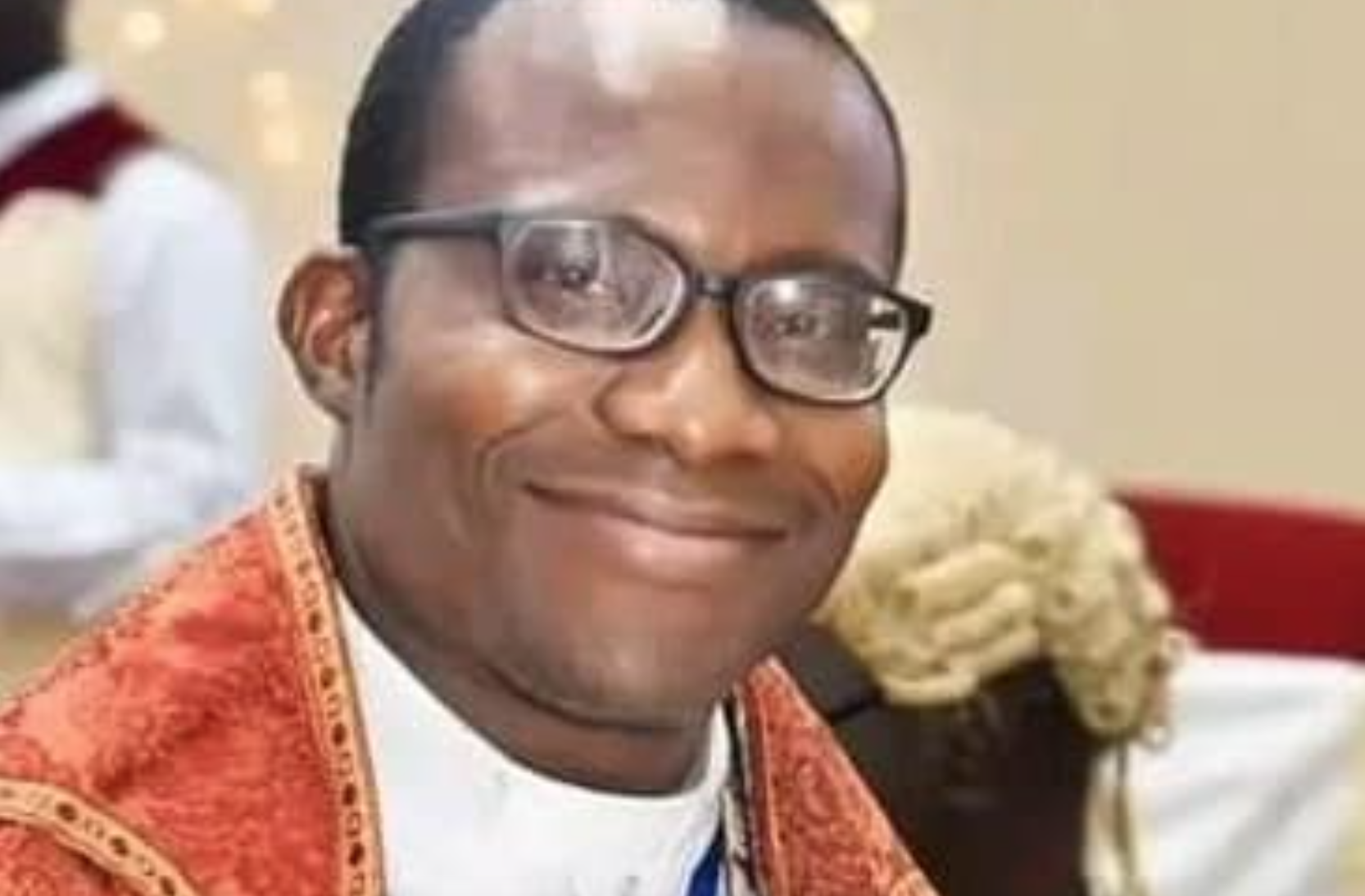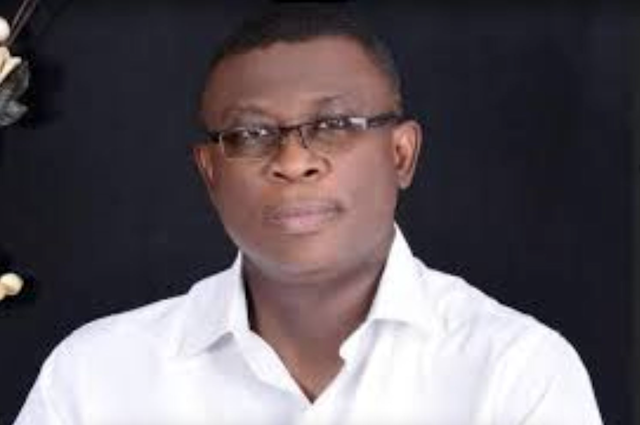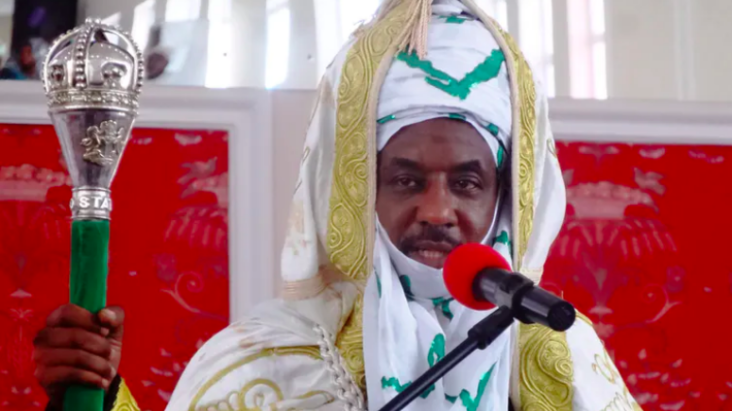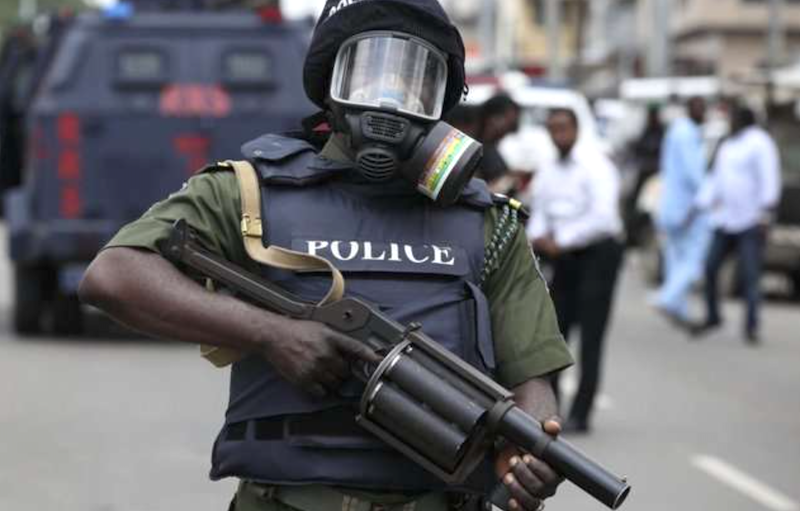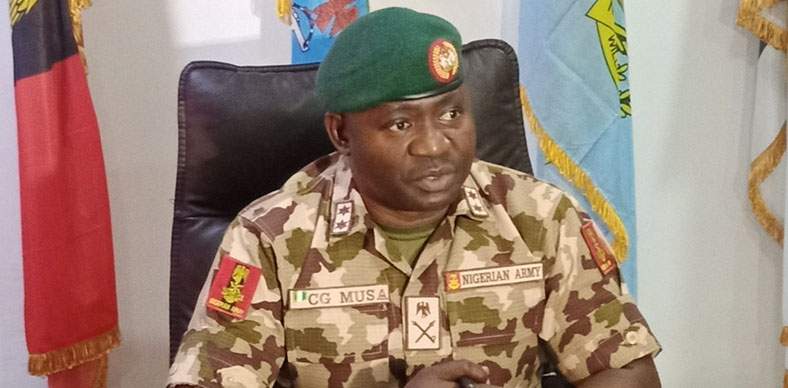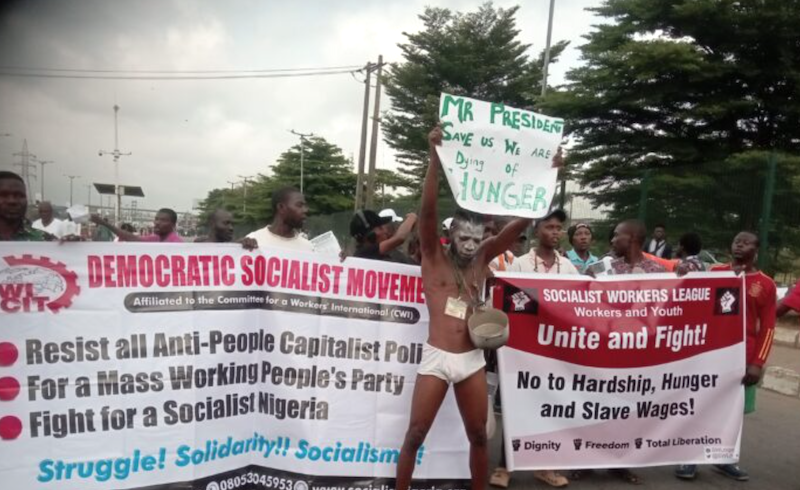Five years ago, on October 11, when Nigeria celebrated its 59th anniversary, I wrote a piece titled “The Call for a National War on Poverty,” which was published in Thisday newspaper and several other traditional and online news platforms.
The motivation for writing the article stemmed from the excessive focus on fighting corruption, which had created a hostile environment for foreign investors. This focus led to economic recessions between 2015-2023, with Nigeria plunging into recession twice in those eight years.
Today, nearly five years after that article, Nigeria and its citizens continue to grapple with corruption and poverty. Instead of moving from poverty to prosperity, the standard of living has worsened, leading to the #EndBadGovernance protests by angry and hungry Nigerians, which regrettably resulted in significant unrest and destruction.
The four days of protests before President Bola Tinubu’s national address wreaked havoc on the nation so much so that our beleaguered country and its struggling economy suffered further damage, with about 13 lives lost and properties worth billions of naira destroyed. The situation was so dire that the presumed convener of the protest, popular lawyer Olu Adegberuwa, reportedly expressed regret: “I appeal to the protesters to withdraw from their various protest grounds and suspend the protests immediately and indefinitely to give room for meaningful dialogue and engagement with the government.”
In recognition of the severe poverty currently ravaging Nigeria, as l earlier stated five (5) years ago, I wrote an article titled “The Call for a National War on Poverty.” Originally published on October 11, 2019, I am republishing and updating it with a new title: “Issues Around the Issue Of Protests” which is focused on the question of whether President Tinubu’s reform policies are against or promoting poverty?”
The question raised in this article’s title about whether the current administration is fighting poverty is crucial because unlike his predecessor, ex-President Muhammadu Buhari, who focused his leadership solely on fighting corruption for eight years, President Bola Tinubu’s administration, just over one year old, has concentrated on implementing massive reforms that have the potentials to alleviate poverty. Ostensibly, these reforms are aimed at overturning decades-old policies that have kept Nigerians shackled and in poverty. But they are taking a bit longer to manifest their positive expectations which is why some Nigerians are anxious and aggrieved.
Key among these policies are the removal of subsidies on petrol, the naira, and electricity. These have been replaced with new socio-economic paradigms, which, although they hold promise for long-term improvement, have initially caused significant hardships for many Nigerians.
Former President Olusegun Obasanjo offers a unique perspective on the removal of petrol subsidies and boosting local production of this crucial commodity. He remarked, “If those who are selling or supplying refined products for Nigeria feel that they will lose the lucrative opportunity, they will also make every effort to get him (Dangote) frustrated.” He added, “Those problems, as far as the government refineries are concerned, have never gone. They have even increased. So if you have a problem like that and that problem is not removed, then you aren’t going anywhere.”
Five years ago, I called for a paradigm shift in our development strategy from merely fighting corruption to combating poverty and reforming policies that hinder development. This call was ignored by the previous administration, which continued its anti-corruption efforts without investing enough effort in combating poverty. The efforts devoted to solely tackling corruption ultimately proved ineffective, as reflected in Nigeria’s stagnant corruption perception index, while the fight against graft damaged the economy and the country’s image. As a result, the economy and the lives of Nigerians deteriorated, leaving the current administration with the task of alleviating the masses’ frustration after their painful experiences under the former regime.
Given this background, President Bola Tinubu, who promised change, was expected to quickly deliver the benefits of democracy. However, the delayed realization of promised economic reforms, which have had a severe impact on the general populace, has made the Renewed Hope Agenda seem like an illusion. That is why many Nigerians have been anxiously waiting for a drastic improvement in their conditions and becoming impatient as respite is not manifesting in their expected timeline.
Unfortunately, this expectation persists despite being unrealistic. The reality is that it is wishful thinking to believe that Nigeria’s current economic problems, caused by poor policies over the past four to five decades that were supposed to be ad-hoc but became entrenched and permanent, would disappear instantly. When President Tinubu finally addressed the nation on the fourth day of the protests, which had turned riotous, he outlined the steps taken to help Nigeria escape poverty:
“In the past 14 months, our government has made significant strides in rebuilding the foundation of our economy to carry us into a future of plenty and abundance. On the fiscal side, aggregate government revenues have more than doubled, hitting over 9.1 trillion Naira in the first half of 2024 compared to the first half of 2023 due to our efforts at blocking leakages, introducing automation, and mobilizing funding creatively without additional burden on the people. Productivity is gradually increasing in the non-oil sector, reaching new levels and taking advantage of the opportunities in the current economic ambiance.”
He then highlighted that under his administration, the federal government has advanced about N570 billion to government at sub-nationall levels to ameliorate hardships at the grassroots level and Nigeria has reduced the proportion of revenue used to service debt from 98% to 68% and paid off $5 billion in foreign debt. Additionally, he announced an investment of N45.6 billion for the procurement and installation of Compressed Natural Gas (CNG) kits in mass transit vehicles to counter the increased costs following the removal of petrol subsidies.
Mr. President also stated that the government under his watch has also allocated N200 billion to a newly formed program to drive consumer credit at single-digit interest rates to boost production and purchasing credit for the masses, just as it has provided N50 billion for the newly launched NELFUND, driving the currently functional student loan program. Other initiatives include setting aside $620 million for the empowerment of Nigerian youth through digital and creative enterprises.
Despite these measures, some protesters and leaders from the main opposition parties, the People’s Democratic Party (PDP) and Labour Party (LP), were not appeased. They argued that the broadcast, despite its calls for calm and dialogue, was self-serving. Fortunately, the nationwide tension has subsided, and peace has returned to most parts of the country. This may be because the genuine intentions of the protesters were overshadowed by those with a regime-change agenda, as evidenced by minors waving Russian flags during the protests. The use of minors to display these flags is likely a tactic to avoid prosecution, as the 1999 constitution as underaged individuals cannot be charged for criminal actions.
During the four days of unrest, three global events paralleled the protests in Nigeria.
The first event is the ongoing civil disobedience in the United Kingdom, fueled by misinformation spread via social media, similar to how social media was used during Nigeria’s 2020 #EndSARS protests and is now driving the #EndBadGovernance protests. This disobedience was sparked by the tragic stabbing of three children in Southport by a 17-year-old, Axel Rudakubana, who was wrongly identified by far-right activists as an immigrant.
Although UK authorities classify this as an anti-immigration crisis, I argue it is xenophobia targeting not just blacks but Muslims and non-Caucasian foreigners. This attitude mirrors the xenophobic violence in South Africa, where locals attacked the businesses and homes of successful black immigrants. It is also similar to the events that happened in Nigeria in the mid-1980s when Ghanaians were expelled in an anti-immigration crisis dubbed “Ghana-Must-Go.” A few years ago, Ghana retaliated by antagonizing Nigerians doing business and living there, accusing them of dominating commerce .
These scenarios illustrate that global poverty crises are triggering protests against authorities for either implementing poverty-inducing policies or being lax with immigration policies that allow immigrants, legal or otherwise, to take local jobs.
Ironically , just as Nigerians are marching against hunger, Britons are rioting under the guise of anti-immigration sentiments against Muslims, Arabs, and non-Caucasians, whom they believe are taking their jobs and corrupting their culture. This intolerance is both sad and disappointing.
Surprisingly, Britons may not even accept legal immigrants, despite these skilled workers filling gaps left by the UK’s exit from the European Union. This situation highlights global crises of various kinds, with world leaders still struggling to find solutions. This is evident as former U.S. President Donald Trump, now a candidate of the Republican Party, and his supporters—comprising about 30% of voters, similar to the Republican’s 30%, (with 40% as independents in swing states which both parties are struggling to win over to their respective sides) —also expressing displeasure over illegal immigrants, whom they accuse of taking American jobs.
Given these dynamics, Trump is likely to win the November 5 election due to his stance on immigration, much like Marine Le Pen’s National Rally Party, which gained 143 seats in the French parliament by pushing an anti-immigration agenda. Consequently, with significant seats in the French parliament, President Emmanuel Macron must form a coalition government after the ongoing Olympics in Paris.
These events underscore a growing global intolerance towards foreign nationals and frustration with leaders’ policies on socioeconomic issues and immigration across the world.
Ultimately, citizens are expressing their dissatisfaction through protests and at the ballot box, as seen in the recent violence in the UK and France, following elections that enabled far-right gains. This expression of discontent is a hallmark of democracy, which guarantees freedom of speech, so protests against government in Nigeria is not an exception. But forceful regime change which has been established as the sinister motive of some of the protesters in Nigeria is condemnable and thankfully and commendably ,Nigerian security agencies gathered enough intelligence to figure it out and nipped it in the bud.
Another significant moment for me is Nobel laureate Professor Wole Soyinka’s condemnation of the Nigerian police’s brutal response to protests, resulting in numerous deaths, a figure disputed between 13 by some accounts and 7 by the Nigerian police. Unimpressed with the police conduct, Prof. Soyinka stated:
“Live bullets as a state response to civic protest – that becomes the core issue. Even tear gas remains questionable in most circumstances, certainly an abuse in situations of clearly peaceful protest.
“Hunger marches constitute a universal S.O.S., not peculiar to the Nigerian nation. They belong indeed in a class of their own, never mind the collateral claims emblazoned on posters.
“They serve as summons to governance that a breaking point has been reached and thus, a testing ground for governance awareness of public desperation.
“The tragic response to the ongoing hunger marches in parts of the nation, and for which notice was served, constitutes a retrogression that takes the nation even further back than the deadly culmination of the watershed #ENDSARS protests.
“It evokes pre-independence – that is, colonial – acts of disdain, a passage that induced the late stage pioneer Hubert Ogunde’s folk opera BREAD AND BULLETS, earning that nationalist serial persecution and proscription by the colonial government.”
Compared to the British police’s reliance on technology and surveillance cameras to manage riots, the Nigerian police’s lack of such infrastructure has led to accusations of unprofessional conduct. However, the security agencies argue that their harsh response was due to a hidden agenda among protesters, aiming for regime change through subterfuge, which they were duty-bound to prevent as earlier stated.
In fact, it was rather disconcerting and surprising that the suspicion of a regime change became evident when protesters were seen waving Russian flags. This act confirmed intelligence reports, leading the Inspector General of Police, IGP Kayode Egbetokun, to announce that the military was on standby in case the police were overwhelmed. This position was echoed by the Chief of Defense Staff, Army General Chris Musa, in a subsequent press conference.
Considering Russia’s involvement in neighboring Niger Republic, Mali, and Burkina-Faso where regime changes supported by the Wagner Group—a Russian-backed mercenary organization—have replaced French colonial influence, the concerns of Nigerian security agencies about potential plans to forcefully remove the Nigerian president were valid and commendable.
Hence, possibly as a preemptive measure, military force was used in some cases to repel suspected regime change agents who had infiltrated genuine protesters. This might have unfortunately resulted in the tragic deaths of Nigerians, estimated by Amnesty International to be up to 13, though the Nigerian police as earlier stated claim the number is 7. Although the death of even one Nigerian arising from engaging in street protests is unacceptable, the conduct of the Nigerian police, especially the commissioners in Edo, Rivers, and Lagos states, is commendable as they worked hard to gain the trust and confidence of the protesters, making the protests in these locations less destructive.
Another key point for me is the CNN documentary titled “1968: The Year That Changed America,” which highlighted significant events in the US, including the civil rights movement and riots in Washington, DC, revealing the brutality of security agencies at that time. The documentary struck me with the similarity to how present-day Nigerian police had treated protesters, particularly during the #EndSARS riots in 2020, though having learned their lessons they have been less harsh in the current protests. The takeaway from the documentary is that Nigeria’s current practice of democracy is reminiscent of the US in 1968, over half a century ago.
Finally, as the dust from the imbroglio or temporary madness that engulfed our country resulting in an orgy of bloodletting settle, it is hoped that both the administration and the masses have learned lessons from the catastrophic fallouts.
Hopefully, going forward, Nigeria and Nigerians will not be prosecuting just a war on corruption which it has been doing without significant success even before Nigeria secured her independence in 1960 from British colonialists, as one has cataloged in this piece, but also a more serious war against poverty which is the enemy of the multiple ethnic groups/ nationalities that make up this great nation and who speak over 250 tongues and have risen in unison to declare collectively that they are hungry . As a stanza in our national anthem enjoins us “…though tribe and tongue may differ in brotherhood we stand”. We should all do well to imbibe the wording in the national anthem which are critical ethos that we should operatoonalize as good citizens of our great nation, Nigeria.
In light of the foregoing, our subsidiary fights should be against religious bigotry and zealotry as well as against ethnic jingoism which crept into the agenda of the protesters in the nasty incident in certain parts of our country, particularly in Lagos state.
Commendably Lagos state governor Babajide Sanwo- Olu distanced the state government from the xenophobic outburst by the leftists just as the President Tinubu has done in his broadcast demonstrating that there is zero tolerance for hate in our county.
As Nigerians, we must all rise up against politics of excluding any members of any particular ethnic sections of our country from living in any part or being in the leadership of our country.
Magnus Onyibe, an entrepreneur, public policy analyst, author, democracy advocate, development strategist, alumnus of Fletcher School of Law and Diplomacy, Tufts University, Massachusetts, USA, and a former commissioner in Delta state government, sent this piece from Lagos, Nigeria.
To continue this conversation and more, please visit www.magnum.ng
